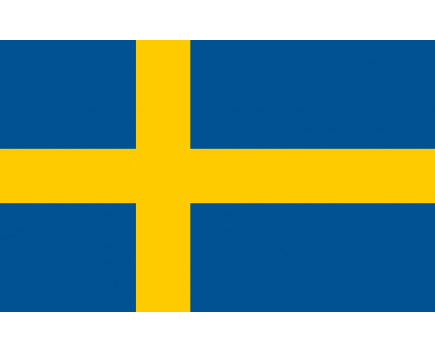
Sweden's Public Health Agency Recommends Classifying Kratom as a Narcotic
The Public Health Agency of Sweden (Folkhälsomyndigheten, or FHM) has recommended that the Swedish government classify kratom as narcotics.
In 2016, Sweden adopted its national drug strategy known as the Comprehensive Strategy for Alcohol, Narcotics, Doping, and Tobacco (ANDT). The primary aim of this strategy is to create a society free from narcotics and doping, minimize the health and social harms associated with alcohol, and reduce tobacco consumption.
According to the Penal Law on Narcotics (SFS 1968:64), the use and possession of illegal drugs are criminal acts. The penalties for these offenses depend on their classification as minor, ordinary, serious, or particularly serious, and take into account the type and quantity of the drugs involved, as well as other relevant circumstances.
Kratom is currently classified as a New Psychoactive Substance in Sweden. These substances are investigated by the FHM to determine their recommendations for government classification. FHM's recommendation is bassed on "the addiction picture, health risks and social risks" of the substance.
In a press release, FHM said:
The plant kratom has addictive properties, and using it can pose health risks. The Poison Information Centre reports that several people in Sweden have had to seek medical care after ingestion from kratom. According to the National Board of Forensic Medicine, there are several cases where mitragynine has contributed to death or been the cause of death.
According to the Swedish Customs Service, imports of kratom to Sweden went from 3 tons in 2019 to 42 tons in 2023.
Mitragynine, kratom's main alkaloid, has been considered a narcotic in Sweden since 1992, but not the plant material itself. Kratom is currently marketed as soap and sold legally. Therefore, the FHM wants to classify the entire plant as a narcotic.
In Same Category
- Several Mississippi Kratom Criminalization, Regulation Bills FAIL
- Indonesia Finally Allows Kratom Exports Under New Regulations
- Scientists Call 7-OH Products a "Rising Public Health Threat"
- Colorado Senate Proposes Tighter Regulations on Kratom
- South Dakota House Votes Unanimaously to Pass Kratom Regulation Bill
Related by Tags
- Several Mississippi Kratom Criminalization, Regulation Bills FAIL
- Indonesia Finally Allows Kratom Exports Under New Regulations
- Scientists Call 7-OH Products a "Rising Public Health Threat"
- Colorado Senate Proposes Tighter Regulations on Kratom
- South Dakota House Votes Unanimaously to Pass Kratom Regulation Bill














Comments
Leave your comment